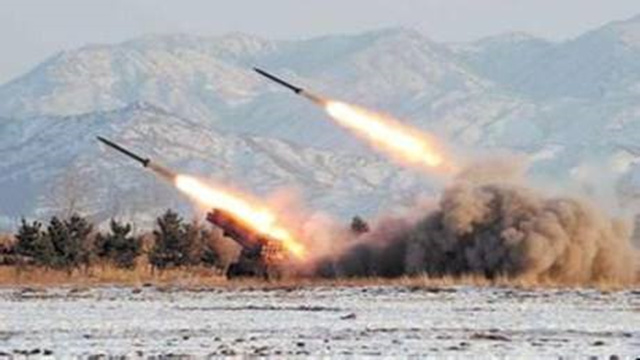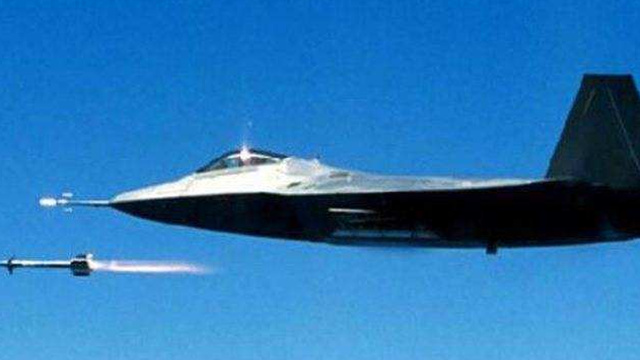The United States, Japan and South Korea began missile detection and tracking exercises again, and the new trend of North Korea attracted great attention.
CCTV News:South Korea’s Ministry of National Defense said today (11th) that the United States, Japan and South Korea began a two-day ballistic missile detection and tracking military exercise that day. This is the sixth time that the United States, Japan and South Korea have held similar military exercises, aiming at strengthening intelligence sharing in ballistic missile tracking among the three countries.
On the 4th to 8th of this month, the air forces of the United States and South Korea conducted a joint air exercise codenamed "Warning Ace" over the Korean Peninsula. The total number of participating fighters and the high specifications are called by the Korean media as the "largest" air exercise in the United States and South Korea so far.

There are more than 230 aircraft of the US and South Korea air forces participating in the military exercise, including 24 stealth fighters of the US military, including 6 F-22 Raptor fighters and more than 10 F-35 Lightning fighters. The US B-1B supersonic strategic bomber also appeared in the bombing exercise.

[Korea] Impose sanctions on some institutions and personnel in the DPRK
In addition, the South Korean Unification Ministry said today that South Korea has decided to impose unilateral sanctions on 20 institutions in North Korea and a dozen North Koreans to prevent their financial exchanges with South Korea.
[North Korea] When inviting the United Nations to visit the DPRK, it will have a dialogue with the United States.
Under the pressure of the US-South Korea military exercise, North Korea’s nuclear weapons showed strength. When the situation on the Korean Peninsula was caught in a vicious circle of showing strength and confrontation, the attitude of North Korea showed new trends. First, after a lapse of six years, he took the initiative to invite senior UN officials to visit the DPRK. Second, he sent a message to the United States through the Russian Foreign Minister, demanding direct dialogue with the United States. North Korea, which has always been tough, played the card of "diplomatic mediation" at this time, which aroused great concern from the outside world.
Yesterday, UN Under-Secretary-General for Political Affairs Faltman concluded his five-day visit to the DPRK and introduced his visit to the DPRK to the media. Faltman particularly emphasized the urgency of easing the tension on the peninsula and reiterated the importance of resorting to diplomatic channels to solve the problem.
In a press release to the media, Faltman pointed out that only by resorting to diplomatic channels and through "sincere dialogue" can the current tension on the peninsula be eased, and in the process of solving problems, "time is the key".
Faltman visited the DPRK from 5th to 9th, and had "extensive" discussions with DPRK Foreign Minister Li Yonghao and DPRK Deputy Foreign Minister Park Myung-kook on issues of common concern. They exchanged views on the Korean Peninsula issue and agreed that "the situation on the peninsula is the most tense and dangerous peace and security issue in the world today".

[Ministry of Foreign Affairs of China] North Korean nuclear issue: We should consider the "double suspension" initiative to take the first step.
According to a recent report by Kyodo News Agency, Gallucci, a former American negotiator on the Korean Peninsula nuclear issue, suggested that the United States and North Korea consider the "double suspension" initiative proposed by China. He believed that if the United States and North Korea build mutual trust through dialogue, North Korea might abandon its nuclear program. China’s Foreign Ministry spokesperson Lu Kang said at today’s regular press conference that he agreed with Gallucci’s point of view.
Lu Kang introduced that, in fact, the "double suspension" initiative proposed by China is being understood and supported by more and more countries and people of insight. At present, the situation on the Korean peninsula is still mired in a vicious circle of showing strength and confrontation, and the prospects are not optimistic. But at the same time, we should also see that the hope of peace has not been annihilated, the prospect of negotiations still exists, and the choice of using force is absolutely unacceptable.
Lu Kang said that China agreed to take practical actions to stop North Korea’s nuclear-guided development process and put forward the "double suspension" initiative, aiming at creating conditions for resuming dialogue and negotiations.
As Foreign Minister Wang Yi said, in the next step, all parties should seriously consider the "double suspension" initiative, take the first step to ease the situation, at least pull the situation on the peninsula out of the current "black hole" and create the necessary conditions and atmosphere for resuming dialogue and negotiations.
Lu Kang said that the DPRK and the United States are the direct parties to the Korean Peninsula nuclear issue and hold the key to solving the problem. China supports and hopes to see the DPRK and the United States accumulate mutual trust and improve relations through direct dialogue and contact, so as to create the necessary conditions for the final settlement of the nuclear issue on the peninsula.